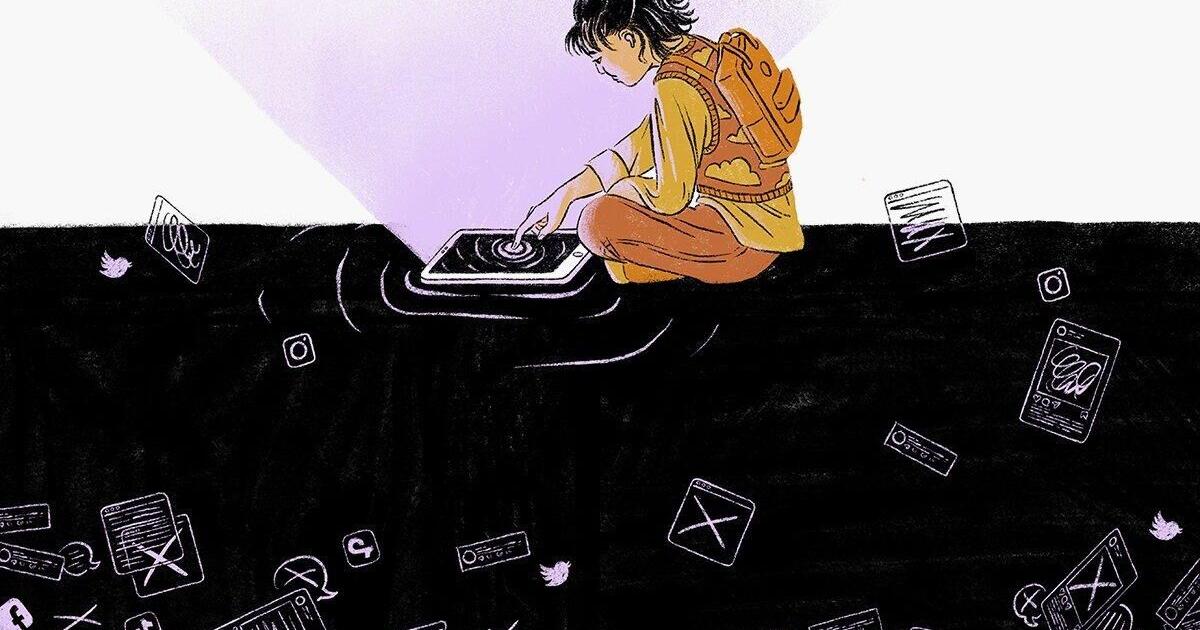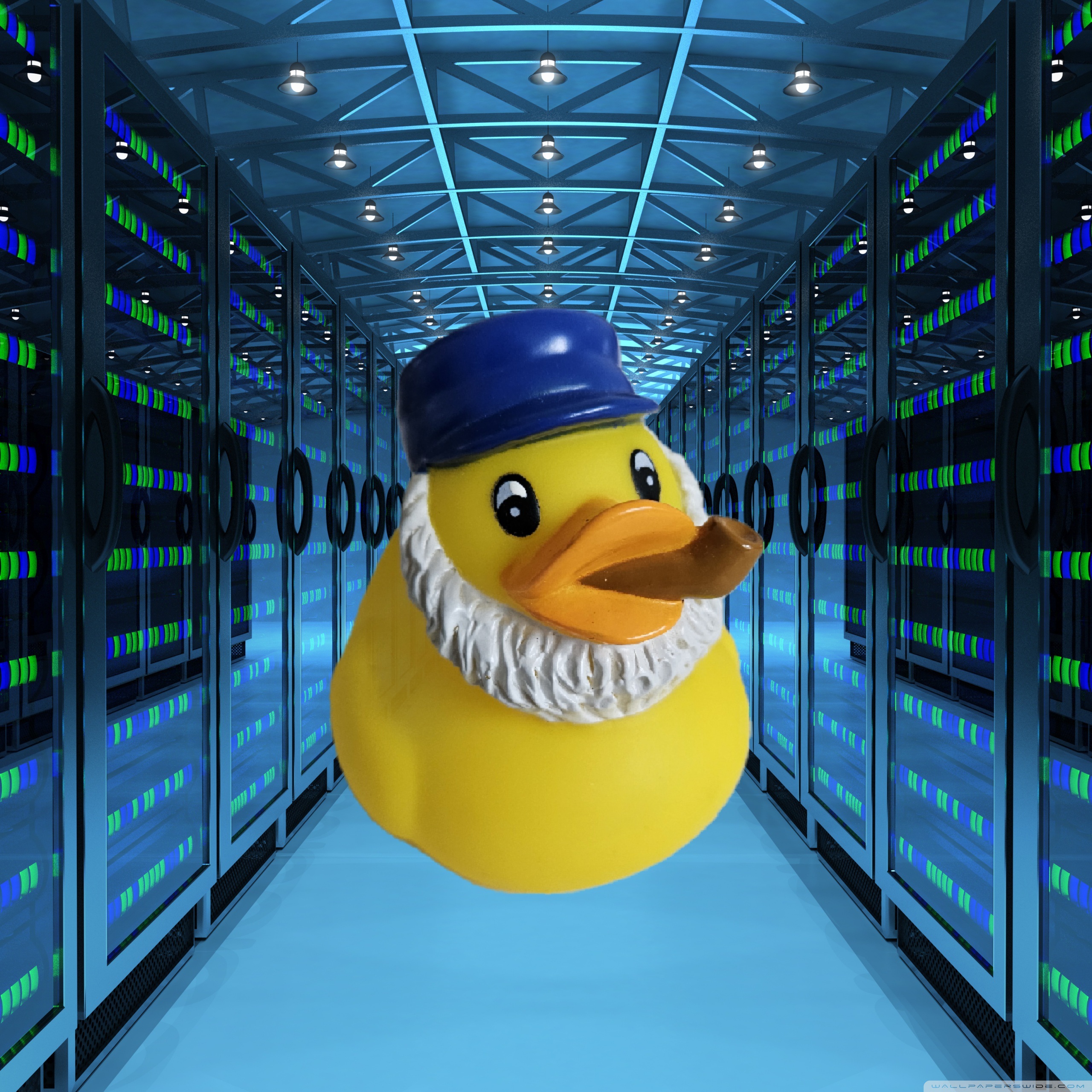They’ve grown up online. So why are our kids not better at detecting misinformation?::Recent studies have shown teens are more susceptible than adults. It’s a problem researchers, teachers and parents are only beginning to understand.
Because on one side you have a kid and on the other side you have hordes of psychologists paid millions for devising better ways to trick them into clicking.
Calling them psychologists is giving them too much credit, but you’re right that the companies trying to trick them are putting tons of resources into it.
Very often this shit is designed by people with psychology degrees.
Social engineers?
Not to mention they’re kids… you know, with limited life experience compared to adults.
A big part of detecting bullshit is having the experience of getting burned by bullshit.
this just in: kids are worse than adults at stuff! wow!
This^
Because media litteracy and critical thinking are not subjects taught being taught in schools.
Inquisitive and skeptical minds do not make for good worker drones.
I had a class in 2nd grade back in like 2002 that taught us about how to spot fake websites, what TLDs meant, and witch ones we could probably trust. One of the examples was a fake site made either as a joke or for these kinds of lectures about tree squids. It was photoshopped octopuses high up in a tree. As with everything in the education system, it’s not that theyre not being taught these skills, the students are not interested in learning them. There are classes that taught me things that people who sat next to me in those classes denied beging taught.
They were taught in school in the 00’s but they discontinued them because “kids already know how to use the internet.” This was evidently a mistake.
deleted by creator
Egads, an typo! My hole point is ruined!
deleted by creator
Maybe because they are kids? I can assure you I am better at detecting misinformation than my previous generation. I don’t want to be that guy, but kids are still learning, until they experience it they don’t understand what to do. No one wastes their time on Roblox ranting about mind control vaccines
Considering kids have been groomed on Roblox, I wouldn’t be shocked if kids were being primed for believing in nonsense conspiracies there either.
Removed by mod
Ah ha! I always suspected as much!
That made me laugh more than it should have.
Kind of a flawed way to do the study. “Why aren’t people whose brains aren’t done developing better at critical thinking than people whose brains are done developing?”
Do it longitudinally. Measure boomers now, then measure gen z when they’re at the age boomers were when they were measured.
Granted, I didn’t read the study, but the question in the title is so silly. Do they think misinformation first appeared online? Why would anyone expect being online more would result in better ability to detect misinformation?
When I was a kid, there was no Internet. All of the misinformation was on TV and product labels. I learned it’s misinformation from people explaining it. If you’re young, you won’t have the experience yet and if you’re in a bubble, online or otherwise, you’ll never gain the experience.
I guess they think that being online means that you can quite easily search to see if that thing the TV host said is BS or not in 1 minute. What they didn’t consider is that firms pay millions to create studies and then boost those in google so that the 1 minute search only return misinformation.
This is just my personal guess though.
Same reason why people who grew up on TV (or radio, newspapers, etc, pick your medium of choice) aren’t better at detecting misinformation?
You mean x-ray glasses don’t work!?
Because no-one taught them to. Just because they have access to the internet doesn’t mean that they’re automatically better at using it. Like how they’re not automatically experts at typing or using the computer, just because they cannot remember a time before internet access was almost ubiqituous.
And since media literacy classes aren’t taught as much as they used to be, they have no easy way to learn to properly critique media, and detect Misinformation. If they’re left to their own devices, they don’t have the skills to not fall into the Misinformation vortices when learning to critique media.
Couple that with the rise of anti-intellectualist views, and that’s just a recipe for trouble. Yes, sometimes the curtains are blue because the author picked it for fun, but sometimes, the author specifically went out of their way to mention the curtains, and their colour, and there is a reason for that.
I think they do learn, just learn the wrong messages. Areas spreading misinformation usually are very accepting of those who agree with them, it’s an easy way to feel accepted. Doom scrolling is a very easy way to feel included and feed your dopamine receptors, but when the rush is gone, it just leaves you depressed.
No one taught gen x and millenials how to discern misinformation, but we figured it out. Why didn’t gen Z?
Because they’re stupid as fuck, just like everybody else (me included). If you read something you agree with, you’re inclined to believe it more than something you don’t.
Truth takes effort to hunt down. Ain’t nobody got time for that in a world of 5 second Tiktok soundbites.
But if you thought that native fluency in the worlds of Wi-Fi and social media was an inoculation against the misinformation spreading across the digital world, you’d be…
…an idiot. What does “knowing how to use the Internet” have to do with “knowing how to spot bullshit?”
This is like thinking “kids these days grow up with cars, why aren’t they better at math now?”
I think a closer analogy would be “kids these days grow up with cars, why aren’t they all amateur mechanics?” Because you don’t have to know how a car works to drive one.
Those are still related. Critical thinking has nothing to do at all with “using the Internet”.
Also teens aren’t really known for being the most rational or making good decisions. In many ways they’re still learning about the world. Comparing their overall capability to adults’ is kind of weird to me
I mean, if you’ve been grown in misinformation you accept it as the norm.
Because unless they browse websites other than social media, all they read will be misinformation.
deleted by creator
I think that I’m better simply because of my early exposure to the internet (as this article assumes would be true of the next generation). I think the difference is in how the internet is being presented to children now versus a decade ago. Many kids today can hardly install an application to a computer, I believe because they see technology as just a part of life to take or leave, not the “exciting new thing”.
Why try to use a computer when you can use a chromebook, and now that the internet is so cushy, lets click some links!
I take your point, and it’s a good one, but I’m also a pedantic ass, so I just wanted to say that a Chromebook is a computer. I know I’m sorry I’ll show myself out
Lmao true, the reliance on the cloud and inability to install applications makes them feel like an entirelty different machine.
But that’s like when I started to learn computers and we had to know how to configure IRQ channels for our SB16 and all sorts of other long obsolete nonsence. Natural language computing is going to be ubiquitous by the time they enter the workforce, it will be a lot more useful to know what to a ask it to do than any understanding of obsolete file system structures and memory management.
Critical thinking is not the same as being immersed in a medium. This article conflates the two.
There maybe a correlation at some level, because you cant critically think about a medium without any exposure.
Especially early adopters might have more critical thinking skills, in general, because they seek out new things and aren’t subject to everyone just having a phone. Thinking the status quo isn’t good enough or could be better is a critical thought.
There maybe a correlation at some level, because you cant critically think about a medium without any exposure.
On the flip side, there is also a counter correlation. Younger people do not have a lifetime of background memories to compare things to. If they hear a politician is “corrupt”, they have little idea how it compares to others on the scale between grave and trivial. And if judging if a president is good or bad, they don’t know how to compare them to previous presidents.
Absolutely.
The US does not teach much critical thinking, as another poster pointed out. We de-emphasize the humanities and make STEM rote memorization based.
Why they think kids should just be better at it than grown adults idk
They are bad at detecting misinformation because of interference from the 5G chips that Hillary put in the all the pedo-pizza’s that Obama gave away for free to all the trans children. The only cure is colloidal dick pill serum that you can buy exclusively from my Facebook page.
“Just one squirt of this man-serum made me a real stud!” -Lindsay Graham
I sense next level shitposter in you
Thank you so much! I’d like to thank the Academy… for letting me sit in their parking lot and use their unsecured wifi to make these shitposts.
Misinformation predates the internet. I would bet it even predates written words. Humans are bad at detecting misinformation unless they are tought a scientific mindset and even that is not a 100% fix.








